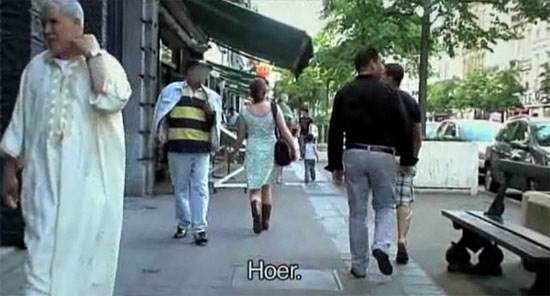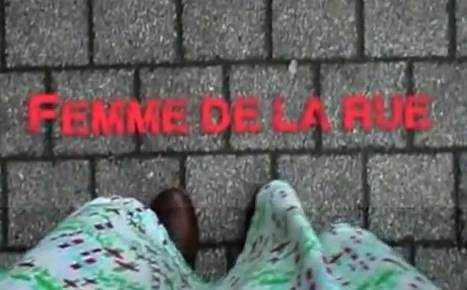 I thought it would be appropriate, for my final article, to go back to what initially compelled me to volunteer for this position. Street harassment is something that most women and LGBTQ+ people I know have experienced since their early teenage years, however I was not prepared for the extent of this harassment that I would face on a daily basis when I first moved to this city. Often termed the ‘Heart of Europe’, Brussels is a beautiful and historic city endowed with a vibrant multitude of cultures, languages and people. I was quickly drawn into and wooed by the beauty and energy of what is possibly Europe’s most underrated city.
I thought it would be appropriate, for my final article, to go back to what initially compelled me to volunteer for this position. Street harassment is something that most women and LGBTQ+ people I know have experienced since their early teenage years, however I was not prepared for the extent of this harassment that I would face on a daily basis when I first moved to this city. Often termed the ‘Heart of Europe’, Brussels is a beautiful and historic city endowed with a vibrant multitude of cultures, languages and people. I was quickly drawn into and wooed by the beauty and energy of what is possibly Europe’s most underrated city.
When I first moved to the district of Chatelain I was instantly enchanted. The square where I lived surrounded a beautiful old church and the streets were filled with quirky cafes, restaurants, quaint shops and even a shisha bar; it was everything I’d hoped home on ‘The Continent’ (what we Irish call mainland Europe) would be. Street harassment is such an almost mundane, everyday occurrence that it took me a few weeks to realise just how much more of it I was experiencing, but also just how intimidating and enraging I found it. I became aware of my increasing tendency to tense up as I left my apartment and actively, almost obsessively avoid eye contact with any male passerbys. I had to suppress my natural instinct to look up, respond when someone called out to me, and i began to walk quite fast. The final straw was one night when I was walking home from the metro and for the second time that month a car drove very slowly beside me for the entire terrifying walk home. The day before I had a man follow me off a tram and I’d had to ask him to leave and then hide in a kebab shop until he did so that he wouldn’t know my address, but the white Ford transit van with its strange serial killer association, crawling by a 5km an hour, its driver staring at me jolted me into indignance. I sent out a few angry tweets to share my frustration and by total chance came across one about this correspondence programme, just in time to sign up.
 As well as giving me the opportunity to write and hopefully to contribute in some small way to the global movement against street harassment, this programme has inspired me to seek out activists and discover their stories. It was inspiring to hear about the dedication and commitment of the Hollaback girls, both Belgium and Ireland based, and my discovery of the film “Femme de la Rue” was the final assurance that i was not alone in my conviction that Brussels has a problem with street harassment and that it is an insidious, imitating part of women and LGBTQ+ people’s lives here.
As well as giving me the opportunity to write and hopefully to contribute in some small way to the global movement against street harassment, this programme has inspired me to seek out activists and discover their stories. It was inspiring to hear about the dedication and commitment of the Hollaback girls, both Belgium and Ireland based, and my discovery of the film “Femme de la Rue” was the final assurance that i was not alone in my conviction that Brussels has a problem with street harassment and that it is an insidious, imitating part of women and LGBTQ+ people’s lives here.
Sofie Peeters, a Belgian film student chronicled her own struggle with street harassment on the streets of Brussels in this highly original and thought provoking documentary. Through the creation of her thesis Soffie shone a well needed light on this issue and in doing so gave both victims and perpetrators a chance to tell their stories. Both of the activists I interviewed mentioned the difficulty in engaging with harassers, Soffie Peeters addressed this, and her interview with a former harasser is possibly one of the most notable aspects of this film. The final message however is clear, concise and spot on, women deserve respect on the streets and to accept harassment is to lose a vital battle on the road to equality.
Dearbhla graduated from BESS (Business and Sociology), in Trinity College Dublin, last year. She currently lives in Brussels, Belgium, where she has a think-tank internship working in the areas of gender, equality, and employment. Follow her on Twitter @imoshedinheels and her blogs.
